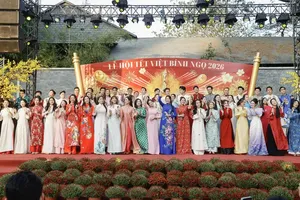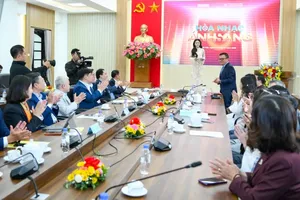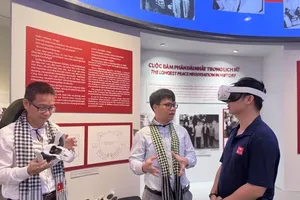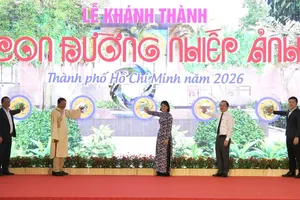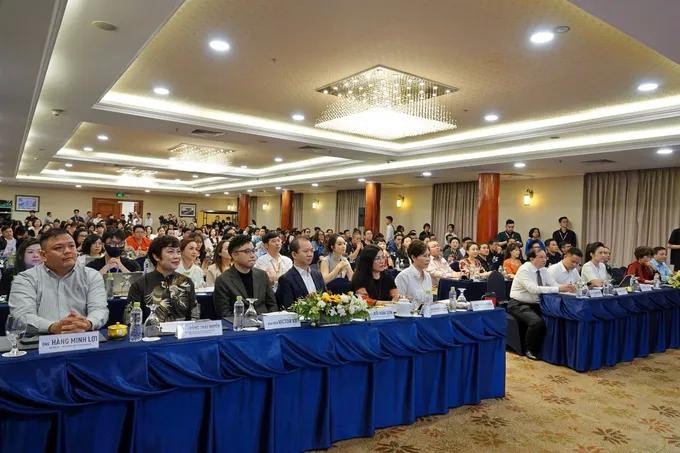
The Associate Professor made the statement at the seminar “Developing Vietnam’s Film Industry in the New Era” held on the morning of November 22 in Ho Chi Minh City — as part of the 24th Vietnam Film Festival. According to him, human resources remain the weakest among the four pillars of Vietnam’s film industry including policy, technology, market, and manpower.
The seminar gathered a wide range of cultural leaders and film experts, including Deputy Minister of Culture, Sports and Tourism Ta Quang Dong who is Head of the 24th Vietnam Film Festival Steering Committee, Director Dang Tran Cuong of the Vietnam Cinema Department and Head of the Festival’s Organizing Committee, Deputy Director of the Ho Chi Minh City Department of Culture and Sports People’s Artist Nguyen Thi Thanh Thuy, Director of the Vietnam Institute of Culture, Arts, Sports and Tourism Associate Professor Nguyen Thi Thu Phuong and Chairwoman Duong Cam Thuy of the Ho Chi Minh City Cinema Association.
The discussions focused on sharing insights and solutions to foster the development of Vietnam’s film industry amid international integration and digital transformation — with the ultimate goal of building a modern, professional, and distinctly Vietnamese cinematic ecosystem.
Delegates also examined trends and technological innovations across the entire film value chain from content creation, production, and post-production to distribution and audience experience.
Notably, among the four key pillars such as policy, human resources, technology, and market, Associate Professor Bui Hoai Son reiterated that manpower is currently Vietnam’s greatest weakness.
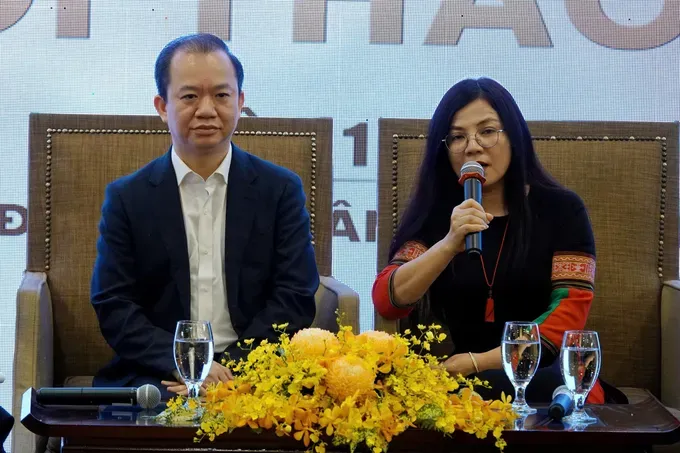
Expanding on this issue, Associate Professor Bui Hoai Son explained that when discussing human resources, one must consider an entire ecosystem comprising directors, actors, screenwriters, producers, censors, and regulators who are all essential links in the filmmaking chain. While progress has been made, he cautioned that solving the human resource challenge will require long-term, structural solutions.
Deputy Minister Ta Quang Dong also candidly acknowledged an imbalance in current training efforts. While Vietnam produces many actors and directors, technical and post-production professionals that are crucial to the industry’s value chain remain in short supply.
Vietnamese films capture 62 percent of market share
In the first discussion session, “Developing the Film Industry in the New Era”, three panelists including Head Tran Thi Phuong Lan of the Department of Culture and Arts under the Central Commission for Propaganda and Mass Mobilization, Associate Professor Bui Hoai Son, and director Victor Vu discussed Vietnamese cultural identity in cinema, opportunities, and challenges in the current landscape of global integration.
Significantly, Vice Chairwoman Dinh Thi Thanh Huong of Galaxy Group and Chairwoman of Galaxy Studio revealed preliminary data showing that in 2025, Vietnamese films accounted for 62 percent of the domestic box office — a sharp increase from 42 percent in 2024.
In the second session, “Applying Technology in the Film Industry,” Lieutenant Colonel and Meritorious Artist–Director Dang Thai Huyen, Hang Minh Loi (Founder of Lumination), and Ta Manh Hoang (CEO of Sconnect) shared insights on how technology is being used in film production and post-production today.
Director Dang Thai Huyen of the film Mua do (Red rain) has, for the first time, revealed many interesting behind-the-scenes stories about the production of the film. She affirmed that technology played a supportive role in helping the film reach completion. However, the director of Red rain also emphasized that the use of technology must be balanced, so as not to diminish the emotional depth or cultural identity embedded in the work.


